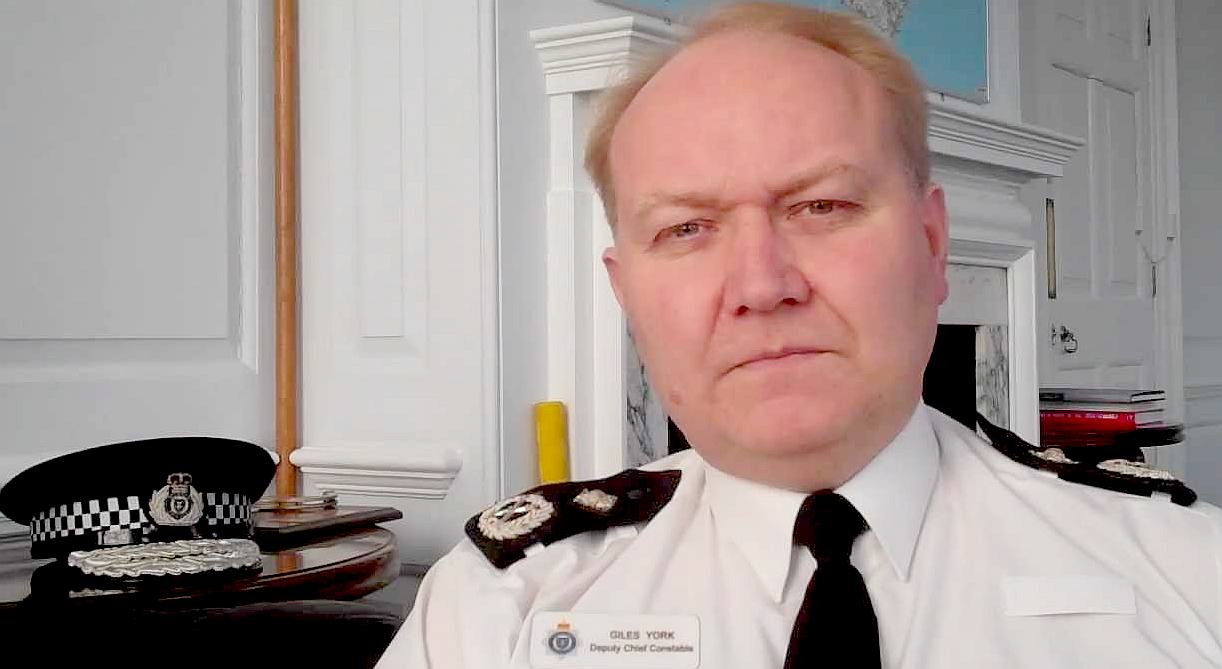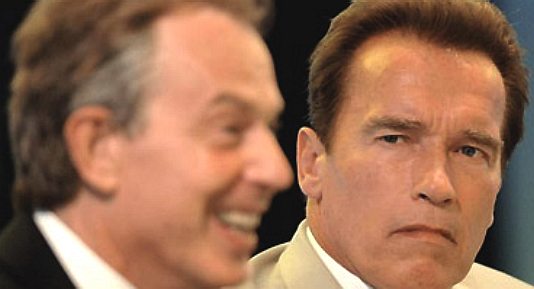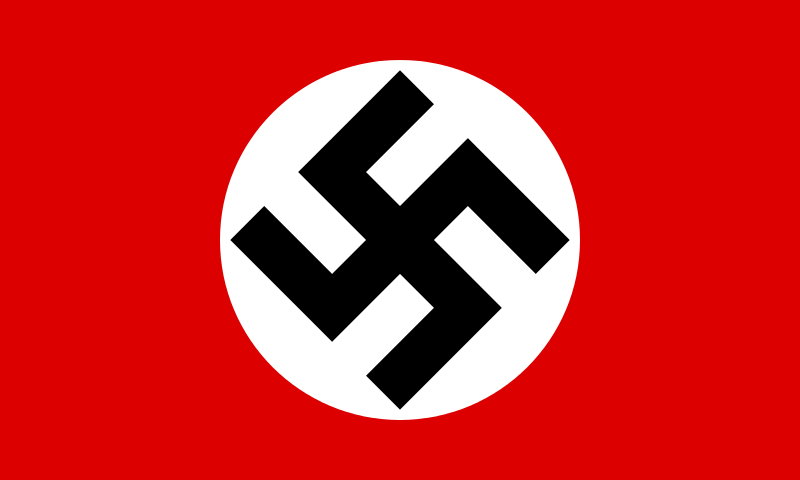|

FRESH
BLOOD - Britain’s terrorism watchdog landed the top role in the Crown Prosecution Service in 2018.
Max Hill QC has pledged to ‘restore public trust’ in the CPS after being named the new director of public prosecutions.
He is a high-ranking barrister who successfully prosecuted the failed 21/7 bombers and appeared in the inquest into the 7/7 attacks, as well as acting in
fraud,
corporate crime and serious violence cases.
In December 2018 The chief prosecutor for England and Wales has warned that the Crown Prosecution Service can take no further cuts if it is to cope with volumes of digital evidence.
Max Hill, QC, who became director of public prosecutions in 2018, said that the service had a conviction rate of about 85 per cent despite suffering staffing cuts of more than 30 per cent over five years. He told the Commons justice committee that it could “absolutely not” take any more, adding that the CPS has had to deal with a huge rise in evidence and complexity as a “result of the communication revolution”.
The Director of Public Prosecutions (DPP) is the third most senior public prosecutor in England and Wales (after the Attorney General and Solicitor General). The DPP is the head of the Crown Prosecution Service (CPS), with personal responsibility for its 7,000 staff and approximately 800,000 prosecutions undertaken by it every year. The holder of the role is appointed by the Attorney General on the recommendation of a panel that includes the First Civil Service Commissioner.
First created in 1879, the office was merged with that of the Treasury Solicitor five years later, before again becoming independent in 1908. The Director's department and role underwent modernisation from 1944 to 1964 under Sir Theobald Mathew QC, and further expansion with the introduction of the CPS in 1985, which came under the control of the Director. The Director is superintended by the Attorney General, who answers for the CPS in
Parliament. The current director is Max Hill QC.
HISTORY AND CHRONOLOGY
A Director of Public Prosecutions was first recommended by the Criminal Law Commission in 1845, who said that "the duty of prosecution is usually irksome, inconvenient and burthensome; the injured party would often rather forgo the prosecution than incur expense of time, labour and money. When, therefore, the party injured is compelled by the magistrate to act as prosecutor, the duty is frequently performed unwillingly and carelessly." The County and Borough Police Act 1856 allowed the Home Office to ask the Treasury Solicitor's Department to take on cases of particular importance, but this left many cases falling through the net. As a result, the Prosecution of Offences Act 1879 was passed, which created a Director of Public Prosecutions (DPP) to advise the police and personally act in cases of importance; an elaboration on the 1856 Act.
The first appointee was Sir John Maule QC, who took up his post in 1880. Maule was a quiet, reserved and cautious man, who interpreted his powers in an unnecessarily restrictive way, feeling that he could do little more than send cases to the Treasury Solicitor's office, and that it was not the job of the DPP to prosecute cases. He came under harsh criticism, which reached a head in 1883 when he refused to authorise prosecution of a pair of blackmailers, who were instead prosecuted privately, convicted and given heavy sentences. As a result of the fallout, the Home Secretary William Harcourt set up a committee into "the present action and position of the Director of Public Prosecutions".
The Committee concluded that the DPP's job, in which he took no practical part in prosecutions, would be best unified into the job of the Treasury Solicitor. This was accepted, and the DPP "vanished in all but name".[citation needed] Successors for the rest of the century held both titles, and both jobs, thanks to the Prosecution of Offences Act 1884. The next few appointees were unimportant and uncontroversial, until Sir Charles Willie Matthews QC, a man Rozenberg describes as "the first real DPP". The Prosecution of Offenses Act 1908 repealed the section of the 1884 Act that unified the DPP and Treasury Solicitor, giving Matthews an office of his own on his appointment in the same year.
The organisation remained rooted in its Victorian origins, still operating under the 1886 Prosecutions of Offences Regulations, until the appointment of Sir Theobald Mathew in 1944. The youngest man (and only solicitor) to be appointed DPP at that time, Matthews modernised the office, updating the Prosecutions of Offences Regulations, introducing trunk dialling and using dictaphones to make up for the small number of shorthand typists. He reorganised and modernised the department as a whole, and many of his modifications are still in place; for example, a provision in many new Acts of Parliament dealing with the criminal law that requires the consent of the DPP for a prosecution. At the same time he battled with the Civil Service for an increase in staff numbers, securing the appointment of three new Assistant Solicitors in the late 1950s; a large leap for a staff which had previously numbered five, excluding secretaries. The Prosecution of Offences Act 1985 created the Crown Prosecution Service (CPS) in 1986, a dedicated, nationwide prosecution service under the control of the DPP, then Sir Thomas Hetherington QC. This involved the recruitment of 3,000 new staff, which despite difficulties the DPP succeeded in doing. The CPS now handles the vast majority of prosecutions.
In 2011, the DPP was given veto power over arrest warrants following a 2009 warrant for the arrest of Tzipi Livni issued by Westminster
Magistrates'
Court.



LIST
OF DIRECTORS
Sir John Maule QC (1880–1884)
Sir Augustus Stephenson QC (1884–1894; also Treasury Solicitor)
Lord Desart QC (1894–1908; also Treasury Solicitor)
Sir Charles Willie Matthews QC (1908–1920)
Sir Archibald Bodkin QC (1920–1930)
Sir Edward Tindal Atkinson QC (1930–1944)
Sir Theobald Mathew KBE MC (1944–1964)
Sir Norman Skelhorn QC (1964–1977)
Sir Thomas Hetherington QC (1977–1987; first head of CPS)
Sir Allan Green QC (1987–1992)
Dame Barbara Mills DBE QC (1992–1998)
Sir David Calvert-Smith QC (1998–2003)
Sir Ken Macdonald QC (2003–2008)
Sir Keir Starmer KCB QC (2008–2013)
Alison Saunders CB (2013–2018)
Max Hill QC (2018–present)

I
SEE NO CRIME - It is a criminal offence not to investigate a crime, of
which, presumably, Giles York must offer master classes, as to how to turn
a blind eye. An
investigation must comprise a full investigation, not just an attempt to
make it look as though an investigation has taken place such as to pervert
the course of justice. Every victim of a crime is entitled to an effective
remedy under the European Charter; Article 41.
In
Queensland, Australia, the Office of the Director of Public Prosecutions (ODPP) represents the State in criminal cases. The community’s interest is that the guilty be brought to justice and the innocent not be wrongly convicted. The main function of the ODPP is to prosecute criminal matters in the Magistrates (limited), District, Supreme and Mental Health Courts, the Court of Appeal and the High Court.
Giles
York is the chief constable of Sussex
Police ....... taking over from a long chain of chief constables,
including Paul Whitehouse, who was finally
forced to resign after the Home Secretary insisted that he should
go following the shooting of Jimmy Ashley
by PC Chris
Sherwood.
It
is possible that Sussex Police is just a bunch of incompetent bunglers,
taking our tax dollars and squirting them up the wall as they masquerade
in police uniforms and enjoy driving striped cars with sirens and blue
flashing lights. Then there is the allure of dark blue uniforms and
handcuffs, or even the chance to shoot and kill somebody with complete
immunity from conviction. The fact is that their Codes of Conduct and
Investigative Procedure Rules are flaunted to craft an investigation to achieve
whatever result is on their secret agenda.
The
way this works is by manipulating the level of investigation a police
officer can almost guarantee a guilty, or a not guilty verdict. You do not
need to plant evidence as many believe, simply look that other way when
you find something that proves the target is innocent.
Many people
will think that the Crown Prosecution Service (CPS) call the shots, but
in fact the real power is downstream, when conducting investigations,
though orders to pull punches may come from upstream, it is the sappers on
the ground who do all the basic dirty work, where other dirty tricks come
from the chiefs and CPS civil servants. The integrity of police investigating
officers is therefore of paramount importance, but their jobs and
career prospects hinge on pleasing the bosses.
Any
investigating officer can bury inconvenient evidence, turn a blind eye to
other inconvenient evidence, ask a state witness to lose contradictory
evidence or simply fabricate evidence as in the cases of the Guildford
Four and Birmingham Six, not forgetting the James
Ashley murder. That is why there is a Code of
Conduct, that unfortunately, and despite several re-issues and re-vamps,
is largely ignored by corrupt forces.
Then
there is the somewhat inconvenient matter of bias......

SUSSEX
POLICE A
- Z OF OFFICER INVESTIGATIONS
Adrian
Wain
Aran
Boyt
Chris
Sherwood
Colin
Dowle
Dave
Tye
Jane
Rhodes
Jo
Pinyoun
Joe
Edwards
Giles
York
Gordon
Staker
James
Hookway
Jeremy
Paine
Kara
Tombling
Keith
Lindsay
Keith
Stoneman
Ken
Jones
Maria
Wallis
Mark
Jordan
Martin
Richards
Neil
Honnor
Nigel
Yeo
Olivia
Pinkney
Paul
Whitehouse
Peter
Coll
Robert
Lovell
Sarah
Jane Gallagher
Sir
Ken Macdonald QC
Timothy
Motram
DPP
CONTACTS
In

..
LINKS & REFERENCE
https://en.wikipedia.org/wiki/Max_Hill
https://www.justice.qld.gov.au/about-us/services/public-prosecutions
http://bentlawyersandcops.com/bent_cops_list.htm
https://www.sussex.police.uk/about-us/senior-leaders/
http://www.sussex.police.uk/
http://www.wealden.gov.uk/



Paul
Whitehouse (1993-2001) Ken
Jones (2001-2006) Joe
Edwards (2006-2007) Martin
Richards (2008-2014) Giles York (2014
>>)
|







